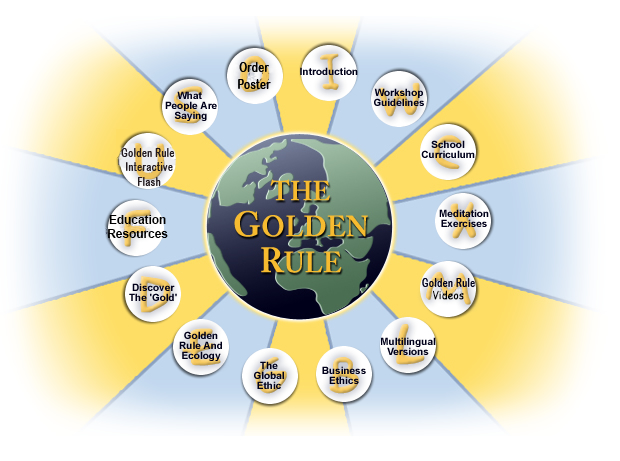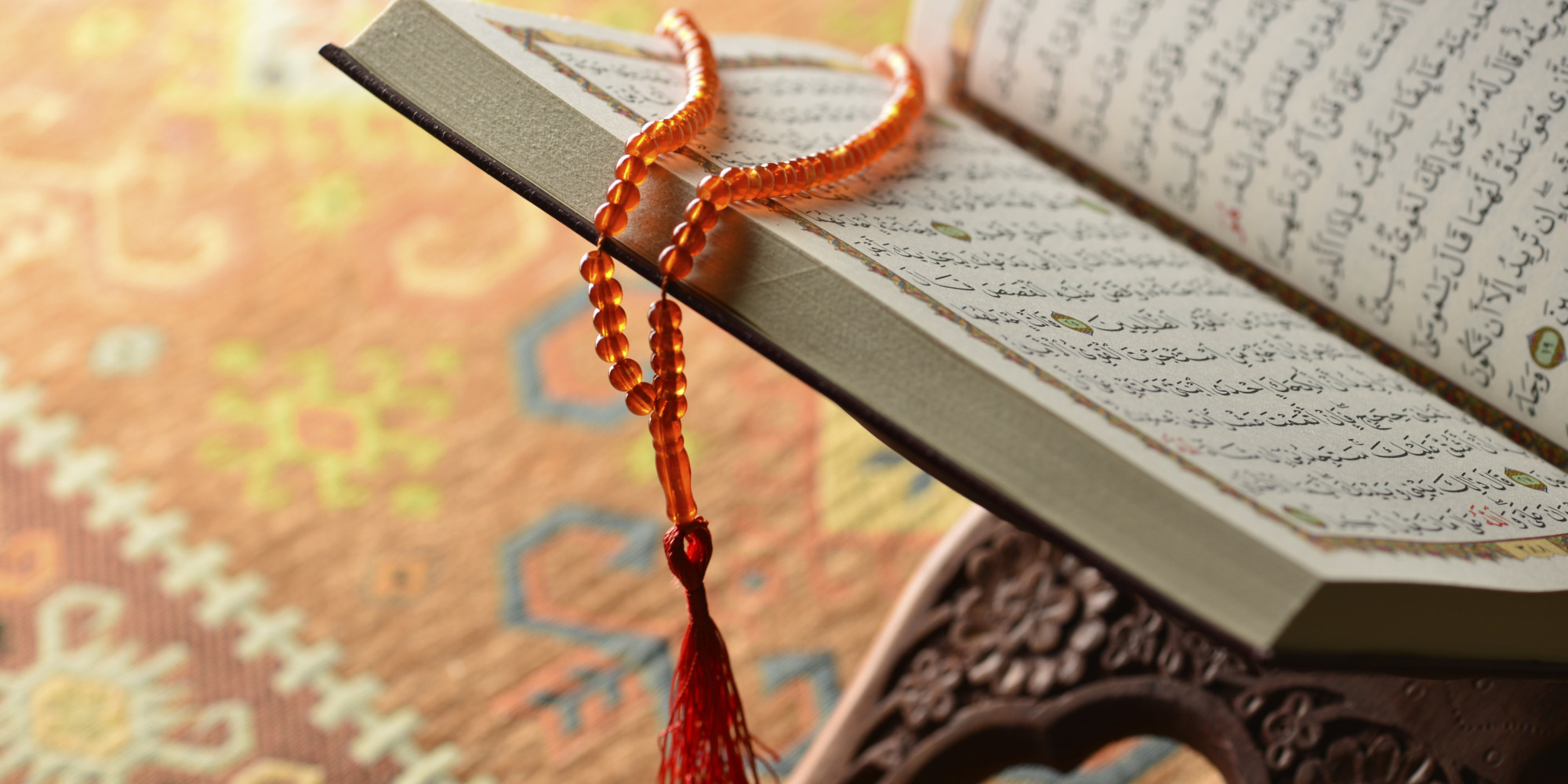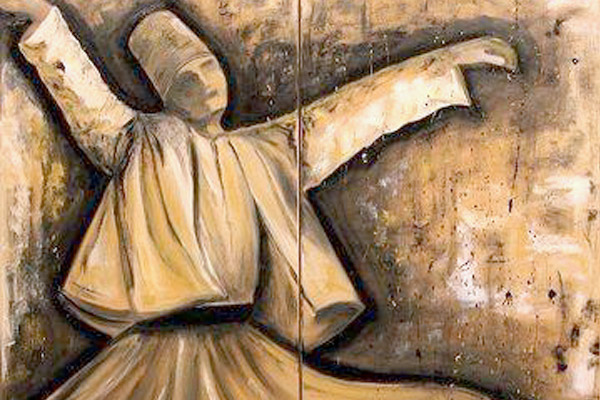Religious Literacy Resource Guide: Video Resources
Resources for teaching religion in the schools.
General Religious Literacy
-
Have a Little Faith
 YouTube series with Zach Anner.
YouTube series with Zach Anner. -
The Golden Rule
 Video resources compiled by Scarboro Missions, primarily for use in youth education.
Video resources compiled by Scarboro Missions, primarily for use in youth education. -
Religion for Breakfast
 Religion for Breakfast believes everyone should know a little bit more about religion. It touches every aspect of human civilization—our art, politics, history, and culture. It has inspired some of our most ethereal music. It has motivated some of our greatest leaders. And, yes, it has also sparked some of our biggest wars and social injustices. But for something that is so important to human history, how much do we really know about religion?
Religion for Breakfast believes everyone should know a little bit more about religion. It touches every aspect of human civilization—our art, politics, history, and culture. It has inspired some of our most ethereal music. It has motivated some of our greatest leaders. And, yes, it has also sparked some of our biggest wars and social injustices. But for something that is so important to human history, how much do we really know about religion?
In order to navigate the pluralism and complexity of the 21st-century religious landscape, Religion for Breakfast strives to boost our religious literacy by producing high-quality educational videos on a variety of religious studies topics. Our topics range from ancient Christianity to modern religious theory, though we hope to expand our offerings as the channel grows.
We handle each topic with the utmost respect, recognizing that discussions about religion often evoke powerful emotions and opinions. This, however, proves the vital importance of religious literacy. If we care so much about this topic, we better know something about it! To that end, we invite you to pledge financial support for Religion for Breakfast. With your help, we can raise the level of conversation about religion on YouTube!
Miscellaneous Religious Literacy
Religion 101
-
The Black Church: This Is Our Story, This Is Our Song
 A moving four-hour, two-part series from executive producer, host and writer Henry Louis Gates, Jr., the Alphonse Fletcher University Professor at Harvard University and director of the Hutchins Center for African and African American Research, that traces the 400-year-old story of the Black church in America, all the way down to its bedrock role as the site of African American survival and grace, organizing and resilience, thriving and testifying, autonomy and freedom, solidarity and speaking truth to power.
A moving four-hour, two-part series from executive producer, host and writer Henry Louis Gates, Jr., the Alphonse Fletcher University Professor at Harvard University and director of the Hutchins Center for African and African American Research, that traces the 400-year-old story of the Black church in America, all the way down to its bedrock role as the site of African American survival and grace, organizing and resilience, thriving and testifying, autonomy and freedom, solidarity and speaking truth to power. -
Introduction to Judaism
 Varun Soni, dean of Religious Life at the University of Southern California, discusses Judaism, the 3,000-year-old ancient religion of the Jewish people. The Hebrew bible (or, the Tanakh) serves as the holy text in Judaism, and outlines the covenant that Jewish people have with God.
Varun Soni, dean of Religious Life at the University of Southern California, discusses Judaism, the 3,000-year-old ancient religion of the Jewish people. The Hebrew bible (or, the Tanakh) serves as the holy text in Judaism, and outlines the covenant that Jewish people have with God. -
Introduction to Hinduism
 Varun Soni, dean of Religious Life at the University of Southern California, discusses the goals and beliefs of Hinduism, the third largest religion in the world. Most Hindus believe all humans and living creatures possess a soul, which is a reflection of God, and that the soul is reincarnated over many lifetimes.
Varun Soni, dean of Religious Life at the University of Southern California, discusses the goals and beliefs of Hinduism, the third largest religion in the world. Most Hindus believe all humans and living creatures possess a soul, which is a reflection of God, and that the soul is reincarnated over many lifetimes. -
Introduction to Islam
 Varun Soni, dean of Religious Life at the University of Southern California, discusses Islamic beliefs and common misconceptions about the second largest religion in the world. The most sacred text for Muslims is the Quran, which most Muslims believe is the direct word of God, as revealed to the prophet Muhammad.
Varun Soni, dean of Religious Life at the University of Southern California, discusses Islamic beliefs and common misconceptions about the second largest religion in the world. The most sacred text for Muslims is the Quran, which most Muslims believe is the direct word of God, as revealed to the prophet Muhammad. -
Introduction to Christianity
 Varun Soni, dean of Religious Life at the University of Southern California, talks about Christianity, the largest religion in the world. The faith is guided by the teachings and example of Jesus Christ, with the goal of achieving eternal life with God in heaven.
Varun Soni, dean of Religious Life at the University of Southern California, talks about Christianity, the largest religion in the world. The faith is guided by the teachings and example of Jesus Christ, with the goal of achieving eternal life with God in heaven. -
Introduction to Sufism
 Varun Soni, dean of Religious Life at the University of Southern California, shares the basics of Sufism, the mystical branch of Islam that seeks to connect the worshipper to the divine through singing, dancing or artistic expression.
Varun Soni, dean of Religious Life at the University of Southern California, shares the basics of Sufism, the mystical branch of Islam that seeks to connect the worshipper to the divine through singing, dancing or artistic expression. -
Introduction to Buddhism
 Varun Soni, dean of Religious Life at the University of Southern California, explains the fourth largest religion in the world, Buddhism. Starting with the story of Prince Siddhartha, who wished to alleviate human suffering and became enlightened in order to help others, the religion does not focus on a god, but rather on self-empowerment and the belief that everyone is already a Buddha but not yet enlightened.
Varun Soni, dean of Religious Life at the University of Southern California, explains the fourth largest religion in the world, Buddhism. Starting with the story of Prince Siddhartha, who wished to alleviate human suffering and became enlightened in order to help others, the religion does not focus on a god, but rather on self-empowerment and the belief that everyone is already a Buddha but not yet enlightened. -
Introduction to Jainism
 Varun Soni, dean of Religious Life at the University of Southern California, gives a primer on Jainism, one of the four major religions out of India. Jainism centers on the belief that there is a soul but no god.
Varun Soni, dean of Religious Life at the University of Southern California, gives a primer on Jainism, one of the four major religions out of India. Jainism centers on the belief that there is a soul but no god.
Web Address: library.rice.edu | Physical Address: 6100 Main Street, Houston, Texas 77005 | Mailing Address: MS-44, P.O. Box 1892, Houston, Texas 77251-1892 | Phone: 713-348-5698 | © 2025 Rice University